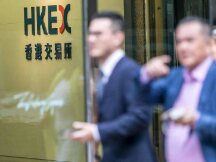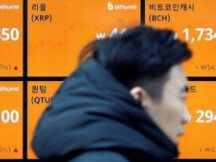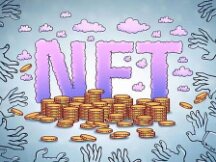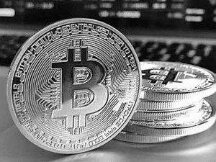Personal loss of 60 million, many virtual profits deemed illegal
Since the "September 24 Declaration," more and more courts have failed to protect ordinary citizens from trading, investing and exploiting virtual currency.
On December 23, 2021, the Guangzhou Internet Court announced a virtual currency civil lawsuit valued at 11.9 million yuan.
The plaintiff and defendant trade in XIN (virtual currency) coins and receive the proceeds from the joint venture, but the private key is held by the plaintiff. The defendants were removed and the virtual investments of both parties were gone forever. in court to obtain damages from the defendant.
The judge ruled that the virtual financial market affects the economy and financial decisions and violates the public interest by failing to comply with the "Report on the protection of token financing risks" and "Opinion on the protection and the health of security securities in the virtual financial sector ”. You are protected by law, you are responsible for your losses and all claims are dismissed.
Coincidentally, a number of courts have recently declared similar cryptocurrency contracts incompatible, and the ruling is similar to all other contracts. .
Mining lost 60 million yuan, the court: personal liability
According to the Beijing Daily, the Beijing Dongcheng Court closed the Bitcoin mining price dispute on October 25, 2021 and declared the contract void.
In May 2020, Qinju Company, Yun'er Company, and Kunying Company signed an agreement and agreed to do Bitcoin "mining." Several electric shocks occurred during the execution of the contract. The Qinju company claimed to have suffered significant financial losses. The company demanded that Yun pay for the loss of 33 bitcoins totaling 5.3 million yuan.
The tribunal found that investments "only" in Bitcoin consume large amounts of capital and do not contribute to the achievement of the "double carbon" objectives of the investment market. The outcome of the contract is null and a loss is incurred by both parties themselves.
On December 15, 2021, the Beijing Chaoyang Court also heard a dispute.
In May 2019, Fengfu Jiuxin Company signed an agreement with Zhongyan Zhichuang Company, and Fengfu Jiuxin Company commissioned Zhongyan Zhichuang Company to purchase and manage "mining equipment", providing more information on "mining Of Bitcoin and paying extra. To do. After the service, Fengfu Jiuxin Company paid Zhongyan Zhichuang Company 10 million yuan for related expenses, Zhongyan Zhichuang Company only paid Fengfu Jichuang Company 18 Bitcoins. Fengfu Jiuxin Company asked the court to rule on Zhongyan Zhichuang Company. 60 million in present value) and other losses.
The Chaoyang court ruled that Bitcoin's "commercial" interference with the contract violated state law, was a promised non-disclosure and non-compliance document, and dropped all of the plaintiffs' claims. The applicant has a labor cost of 450,000 yuan.
In the above three cases, it was judged that there was a risk of illegal subcontracting, and the main reason was the statement of the "Mining Regulatory Notice", "for virtual currency "And" Opinion on the Prevention and Control of Hyper-Advertising in Virtual Currency Transactions "." Opinion "of September 24, 2021 (hereinafter referred to as" September 24 Notice ")
Ding Feipeng, chairman of the Beijing Legislative Assembly Liantong, said that before the introduction of "Notice 9.14" in Lianxin, most of the virtual advantages of the relevant information institutions and the identical public can be regarded as virtual goods. Since the "September 24 Notice," more and more courts have failed to protect the cryptocurrency, investment, and mining industries from the general public.
The virtual currency contract was once considered "reasonable".
Regarding the behavior of virtual currencies, as early as 2013, the central bank and five affiliates met on the “Bitcoin Risk Protection Notice” (hereinafter referred to as “Notice”), You have. , and not real money. Bitcoin is an integral part of virtual goods and cannot and should not be used as currency in stores.
At the same time, the "Notice" urges financial institutions and payment companies to refrain from doing Bitcoin-related business, strengthen the regulation of Bitcoin websites, and prevent the risks of money laundering related to Bitcoin. Bitcoin and other regulatory measures.
"Notice" defines the virtual goods of Bitcoin.
Since then, “advice” has been the primary foundation upon which courts at all levels have heard.
In September 2017, the Internal Finance Corporation jointly announced the “Notice on the Protection of Token Disclosure Financial Report” with 6 other institutions, and in August 2018, the Financial Institutions Insurance Corporation of China and five other institutions jointly announced the "Token Issue" to avoid financial risks. Use of "Virtual Currency" and "Blockchain" The "Illegal Financial Reporting" functionality adds to the risks associated with virtual currencies and strengthens oversight.
However, while legal documents have warned of the risk on one side, it has not been decided that the cryptocurrency market is illegal on the other. In this case, all contracts involved in virtual currency are recognized as valid and protected by law.
China's first Bitcoin-related online ordering problem occurred in January 2014. Almost twice a year the price rose from 11 in 2014 to 992 in 2020, accounting for more than half of civil disputes since many years.

"Lianxin" found that in the above case, most public documents are judged by a judge to determine the validity of the contract, and determined accordingly, such as contractual obligations and rules and regulations.
For example, according to the Guangxi Yizhou court ruling in January 2016, contracts established by law are protected by law. The plaintiff and the defendant have agreed to speculate in Bitcoin, and the plaintiff and the plaintiff have established a loan relationship in the financial management license, and the parties will be required to fulfill their obligations under the contract.
In January 2017, the Nanjing Jianye District Court ruled in a statement that "Mark currency trading is one of the most popular online gambling products on the Internet, and ordinary people have independent participation in their own. danger. The sovereignty of the Mark Coins does not violate any laws and regulations, so it is legal and must be valid and protected by law. "
The repayment of loans in the form of virtual currency is also protected by law.
In the case of the loan dispute in the Haidian court in Beijing in 2020, the plaintiff and the defendant used Ether virtual currency in addition to cash to repay the loans, and the court determines its validity. The former pointed out that Ether is a business under a legal contract, which can legally own it and benefit the public in that it does not list virtual assets such as Ether under the law. Korean now and hope the benefits can be reaped. To do. It must be protected by law.
Currently, the cryptocurrency industry has been classified as illegal.
However, according to the “opinion” published in 2013, some courts have come to a deviation.
For example, in 2015, a man in Shandong Province malfunctioned and traded his 31 bitcoins to a friend, but when the friend refused to return, the man sued the friend in court. In January 2016, a court in Shanghe County, Shandong Province rejected the initial claim. According to the "Bitcoin Risk Protection Notice", the court ruled that Bitcoin is not protected by law in our country, and the industry is not protected by the right. The rewards depend on your risk.
In October 2017, the Nanjing Jiangning District Court also issued a similar ruling that according to the 2013 "Notice", Tickcoin is similar to Bitcoin and belongs to virtual currency. Virtual currency trading is currently not protected by law. Liability arising from cryptocurrency activity is illegal and is not protected by law.
According to statistics from "Lianxin", from 2014 to 2020, on public issues related to virtual services, cases were decided by the court on the basis of the risk of illegal contracts represent about 10% of the total, and the amount involved is weak . In the above two cases, the registered capital is approximately 70,000 yuan (31 bitcoins) and 36,000 yuan, respectively, based on the annual fee.
In addition, some incidents were also found to be inaccurate due to fraud, pyramid schemes, token financial advertisements, etc.
Guo Zhihao, chairman of the legal committee of the Shenzhen Information Services Blockchain Association and partner in Beijing Yingke (Shenzhen) law, told Lianxin that our country's information law works for jurisdiction at all levels. Due to the open interpretation of certain provisions of the law, the privacy policy also has different legal standards. In general, our national policy for governance of virtual currencies is evolving from risk taking towards real and specialized governance practices, then towards optimization.
The "9.24" report published on September 24, 2021 is an important moment for the legal regulation of virtual currency.
Among them, 10 entities including the central bank reported the first version of the “Notice on the Protection and Exploitation of Virtual Real Money,” which distributed profits on commercial transactions based on financial crimes. Investing in virtual currency and benefits that violate public and cultural norms and violate public policy, and you will be responsible for any losses that occur.
The National Development and Reform Commission and 11 other agencies have released reports on new developments in cryptocurrency mining activities, noting that the energy consumption and carbon emissions of virtual currency mining are high and its contribution to the national economy is low. In addition, virtualization and virtual commerce will increase the risks associated with these connections, and improving blindness will have a negative impact on the quality of business and the development of the relationship, including the promotion of energy savings and reducing emissions. This report provides an overview of the virtual benefits of "mining", limiting investment in new businesses and speeding up existing operations.
Compared to existing legal documents, “Notice 9.24” has a clearer definition of functions such as investing in virtual currency and using virtual currency, and the additional protection effort.
Ding Feipeng said that the new statute of Beijing Chaoyang District Court, Beijing Dongcheng District Court and Guangzhou Internet Court for mining, trading and investment of virtual currency is not a " card case ”, but a new case behind“ warning 9.24 ”. There will be some on the next decision of another court, we are not deciding that there will be many places in the future, the controversy arises from the market, Trading and investing in virtual currency is not protected by law, and the risk depends on the participant at his own risk.

Scan QR code with WeChat































